Movie Review – Doctor Sleep (Director’s Cut)
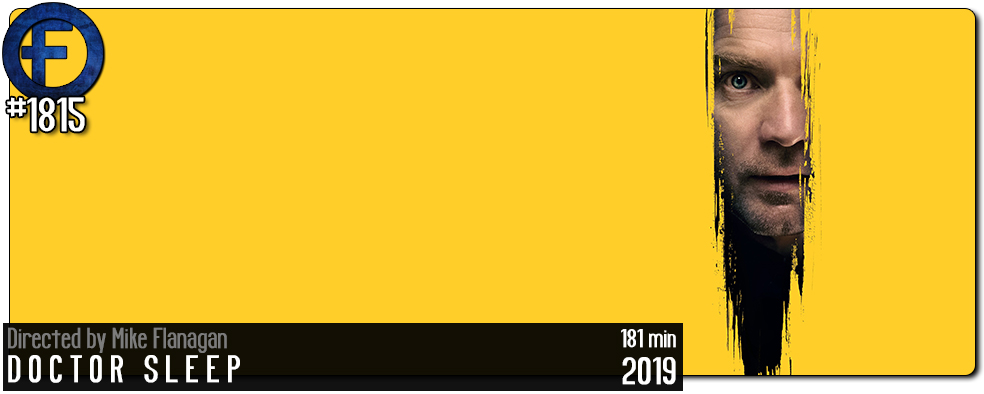
Principal Cast : Ewan McGregor, Rebecca Ferguson, Kyleigh Curran, Cliff Curtis, Carl Lumbly, Zahn McLamon, Emily Alyn Lind, Bruce Greenwood, Jocelin Donahue, Robert Longstreet, Carel Struycken, Alex Essoe, Zackary Momoh, Jacob Tremblay, Henry Thomas, Violet McGraw.
Synopsis: Years following the events of The Shining, a now-adult Dan Torrance must protect a young girl with similar powers from a cult known as The True Knot, who prey on children with powers to remain immortal.
********
This review is based on the three hour Director’s Cut of Doctor Sleep, available on BluRay.
This review contains spoilers for Doctor Sleep.
In the pantheon of cinematic horror, few films approach the reverence with which Stanley Kubrick’s 1980 film version of The Shining, based upon Stephen King’s 1977 book of the same name. To suggest it’s a masterpiece of the genre is to grossly undervalue the influence Kubrick’s eerie classic has wrought through these years, not to mention its pop-culture relevance through countless parodies, callbacks and even outright homages (see Ready Player One). King, who famously described Kubrick’s adaptation of his novel as “poor”, would wait until 2013 to revisit the franchise in literary form, delivering “Doctor Sleep” to bookstores and rabid fans clamouring to return to the Overlook Hotel. In keeping with the modern desire to tap into people’s nostalgia, Warner Bros approached horror director Mike Flanagan (Oculus, Hush, Gerald’s Game) to helm the film version of Doctor Sleep, starring Ewan McGregor as an adult Danny Torrence, in a story that revisits classic iconography whilst introducing an entirely new and evil menace to be fought.

In the aftermath of the events of The Shining, young Danny Torrence (Roger Dale Floyd as a kid, Ewan McGregor as an adult) goes to live with his mother Wendy in Florida. He continues to encounter ghosts from the Overlook, and, with the aide of the everpresent ghost of Dick Halloran (Carl Lumbly), creates “boxes” of imprisonment inside his mind, where he locks the sinister apparitions away forever. Later, as an adult, Danny suffers from depression and alcoholism, and travels to a small New Hampshire town to join AA and get work with a friend, Billy Freeman (Cliff Curtis). Meanwhile, a group of immortal psychic vampires calling themselves The True Knot, led by the evil Rose The Hat (Rebecca Ferguson) hunt people who “shine” across the United States, and they have in their sights young Abra Stone (Kyliegh Curran), a powerful force they can use to continue their everlasting life. Abra joins forces with a begrudging Danny to lure Rose The Hat and the True Knot into the abandoned Overlook Hotel to finally bring an end to their trail of death and destruction.

It’s been a week between watching Doctor Sleep and reviewing it. I’ve had to sit with the film for a while, to wrap my head around its utter beauty and mesmerising skill. A towering achievement, Mike Flanagan’s 3 hour director’s cut (inserting nearly 30 minutes of footage lost to the theatrical version) doesn’t just adequately supply a worthy sequel to The Shining, but enhances and expands on the cinematic world Kubrick brought us some forty years ago. I admit to not being among those who needed a sequel to Kubrick’s film, because I think the nostalgia value of revisiting that world didn’t outweigh the completeness and emotional devastation I hoped would remain intact despite Flanagan’s efforts. Doctor Sleep didn’t just assuage my fears, it pounded them into submission entirely: Doctor Sleep is a masterclass in balancing modern horror whilst remaining true to the aesthetic established by Jack Nicholson and Shelly Duvall’s venture into King’s nightmarish vision, boldly treading new footsteps and amazingly keeping true to what we already know.
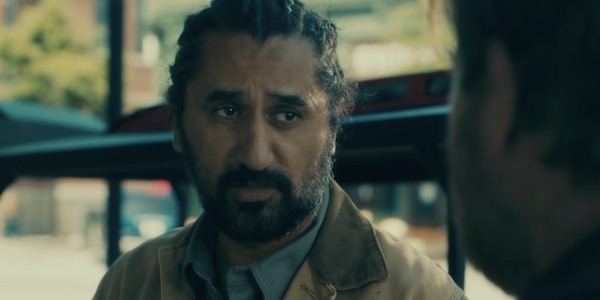
Flanagan wrote the screenplay based upon King’s novel, although several key elements were changed (with King’s blessing) to link the film more closely with Kubrick’s original. It’s a contemplative, evocative, atmospheric screenplay filled with fleshed-out characters and intriguing, kingdom-constructing sidebars. The inclusion of additional people who shine – specifically in the form of Jacob Tremblay’s tragic role of Bradley Trevor, who meets his doom at the hands of The True Knot cult in one of the film’s most torturous and chilling scenes – widens the Shining universe further, giving the complexity of the nightmarish occurrences in the Overlook, which itself is reprised in the film’s climax, more profundity. Flanagan drills down into the desolate nature of an older Dan’s depression and drinking, his post traumatic stress accumulated from years of nightmares and continued battling against the Overlook spirits still chasing him. The morbidity so affluently depicted in much of King’s writing permeates Doctor Sleep, from the its creepy prologue to the eventual revisit to the desolate Overlook Hotel, there’s a pervading sense of death in this story and Flanagan accentuates it brilliantly. His command of dialogue and the dual narrative between Dan’s journey and the True Knot’s search for more who shine is compelling not for any reason other than he makes these character diametrically opposite and yet in and of themselves broken enough to make us empathise with.
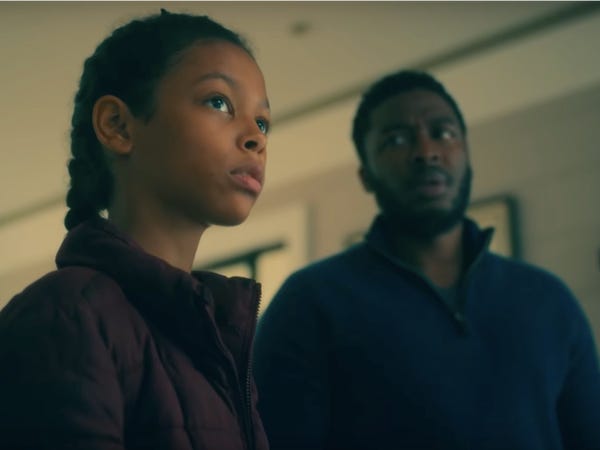
Alongside the feeling of dread the film evokes, what with its heartbeat-pounding sound cue played insistently throughout alongside a nuanced score by Flanagan regulars The Newton Brothers, Doctor Sleep is also incredibly tense. With its expanded running time, Flanagan has the opportunity to develop his underlying themes and bring the audience’s fear to a boil slowly, with stomach-churning tenacity and – in a twist for modern horror – restraint. There are very few jump scares or elements of body-shredding gore, but the film doesn’t shy away from the gasping terror Kubrick brought us with the likes of the corpse woman in Room 237, by way of example. It’s an insidious terror, a rising bile of dread hidden inside the very DNA of the story, and it would be remiss of me not to at least suggest this is arguably the best book-to-screen translation of King’s work since Frank Darabont’s one-two punch of Shawshank Redemption and The Green Mile. The film resides in generating an impregnable atmosphere of terror, a subliminal creep rather than the modern predilection towards explicitly unwrapping our fears overtly. When the inevitable violence does arrive, it shocks appropriately.
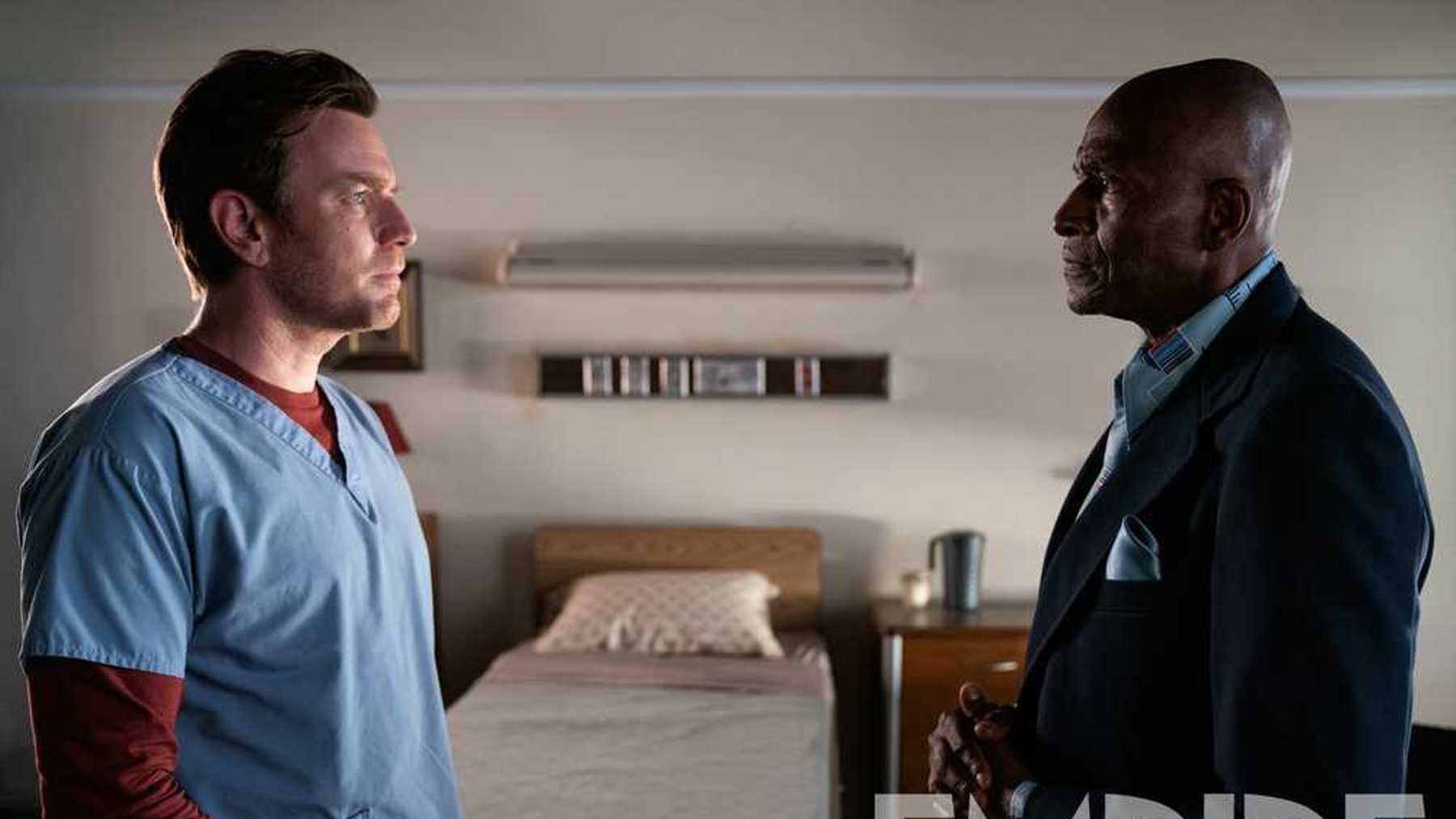
In terms of the cast, there is quite literally not a single performer in Doctor Sleep who puts a foot wrong. From the child actors (especially the one playing a young Danny Torrence, Roger Dale Floyd, replacing the original essayist Danny Lloyd, who is now all grown up and appearing in a minor cameo) to Ewan McGregor and the denizens of the True Knot and the various nursing homes, AA meetings and other sundry folks who come into contact with, the acting in Doctor Sleep is roundly excellent. McGregor obviously holds the film together as Dan Torrence, in a character arc that satisfies throughout, and as is usual for the man he inhabits the role so completely you forget you’re watching Obi Wan Kenobi and are thinking of him only as a grown-up Danny Torrence. Co-star Rebecca Ferguson, as the eminently creepy and entirely cruel Rose The Hat, matches McGregor for expanding the Shining universe with her epoch-ancient immortal character, a lovely performance that, whilst obviously playing the film’s antagonist, works seamlessly into the film as a character we can understand and empathise with, even in the midst of her evil. The third spoke in this tripod of terror is young Kyliegh Curran, playing the powerful psychic Abra Stone: she commands the screen with a presence and naturalness before the camera that will prove her to be a genuine star in the making. Her mental showdown with Rose The Hat is one for the ages, even if it neuters a lot of Rose’s expanding menace: an immortal being not used to being countered suddenly finding herself on the back foot against a mere girl? What?
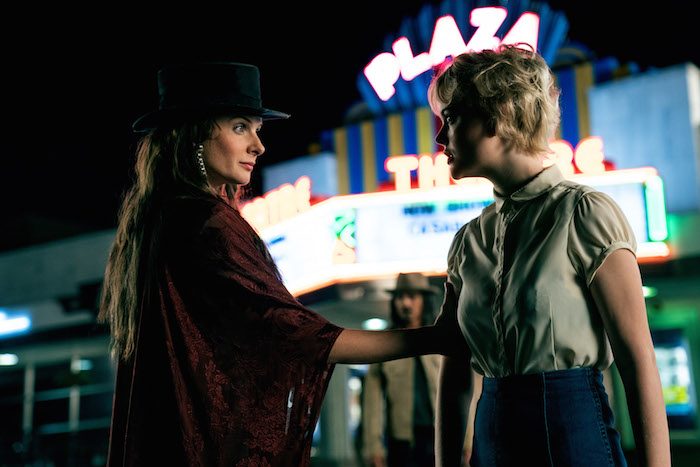
Minor roles to the likes of Cliff Curtis, as Dan’s friend and AA sponsor Billy, Zahn McClarmon as Rose’s lover Crow Daddy, and Emily Alyn Lind as Snakebite Andi, a woman who can control people’s minds simply by speaking, offer elegantly constructed horror film supporting characters, where their influence may not necessarily be central to the film’s plot but rather offers extra substance to the fringes of the premise. A notable appearance by Henry Thomas, yes the same Henry Thomas who played Elliot in ET: The Extra-Terrestrial, as the ghost of the Jack Nicholson character from The Shining, is a very pleasant surprise, not that I recognised him at all until I noticed his name in the credits. References to Kubrick’s film occur primarily in Doctor Sleep’s climactic third act, where Dan and Abra confront Rose The Hat inside the abandoned-but-still-living Overlook Hotel, thanks to a plot device I picked quite early in the piece whereby Dan imprisons the ghosts of the Overlook inside mental boxes within his psyche. It’s insanely cool to see the Overlook set brought to life again, filled with its locked-in-time look and the sense of dormant slumber through which modern characters now stride. A moment where Dan revisits the room in which his father Jack tried to axe his way into the bathroom will send a shiver down your spine, with Flanagan’s attention to detail (the shattered door from that iconic moment looks identical in every respect) spot-on.
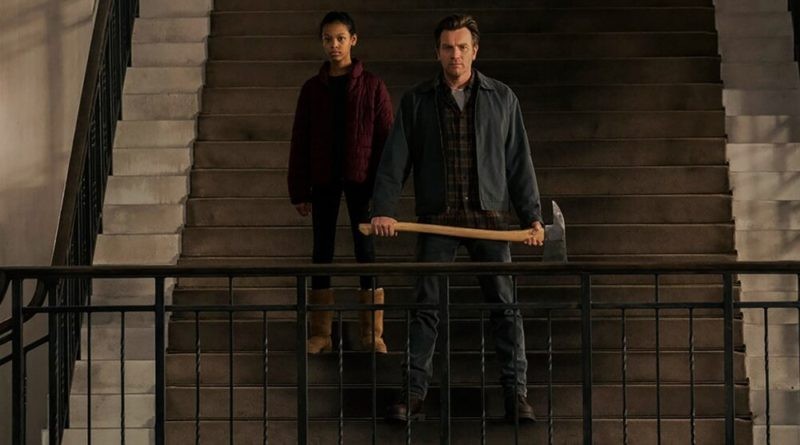
In terms of pure direction, Flanagan does what I would have considered to be nigh impossible. He marries the style and tone of Kubruck’s fluid camerawork and use of cats-eye lenses with his own modern sensibility, meshing the old and new so seamlessly you’d almost think Kubrick himself helmed the film were you otherwise unaware. Truthfully, this is the aspect of Doctor Sleep I admired the most, regardless of story and character beats, leaving me satisfied that both films, when viewed together, form equal halves of a sublime whole. It continues the story brilliantly, offers a tangible link to the past whilst resolute in its modernity, and exacts an emotional toll for the viewer who enters within. Admittedly, the three hour director’s cut does have some ballast one can spot here and there, but these scenes don’t undo the film in any way that lessens or cheapens the outcome. If you’re game, settle back and soak up the dread and anxiety of a return to the Overlook and one of cinema’s most iconic ideas. Doctor Sleep is exquisite.


What’s up! Sorry to say I stopped reading when I saw the spoiler warning because I haven’t seen it yet. That said, I was pleasantly surprised to see the A+ when I scrolled down to leave a comment. Hopefully I’ll get to it soon.
LOL good thing I put that warning there, right? When you see it (and you really, really should, and soon) come back and let me know what you think, my friend.